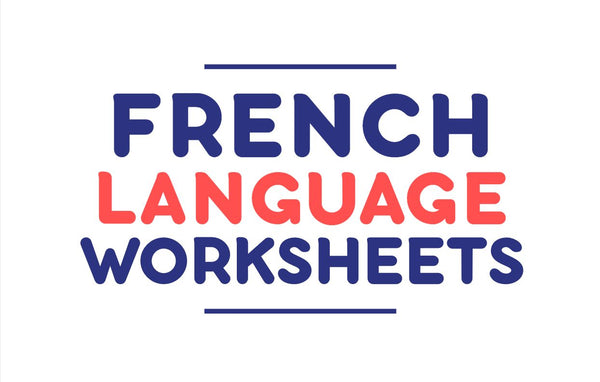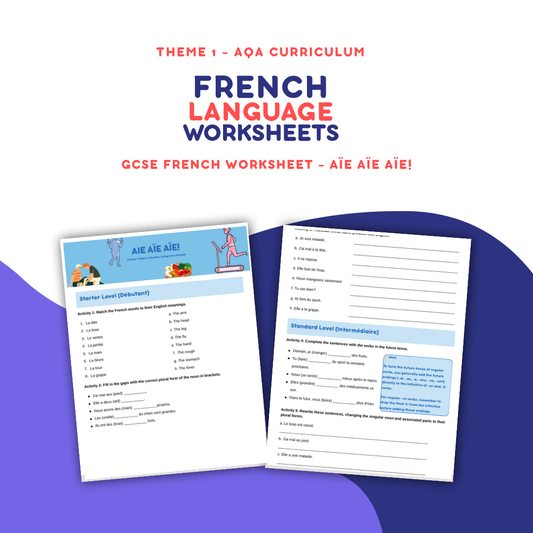Safeguarding Policy
Safeguarding Policy Statement
This behaviour code outlines the conduct that french-language-worksheets.com is following. The behaviour code is designed to help us protect children and young people from abuse. french-language-worksheets.com is responsible for making sure everyone taking part in our activities has seen, understood, and agreed to follow the code of behaviour, and that they understand the consequences of inappropriate behaviour. We encourage parents/guardians to talk openly to us about any concerns they may have and to let us know if their child needs extra support so we can meet their needs.
We follow the government’s and the NSPCC’s advice on safeguarding and child protection for tutors.
Safeguarding and child protection for tutors | NSPCC Learning
Principles
- We believe everyone has a responsibility to promote the welfare of all children and young people, to keep them safe, and to practise in a way that protects them.
- We give equal priority to keeping all children and young people safe, regardless of their age, disability, gender reassignment, race, religion or belief, sex, or sexual orientation.
- We recognise that some children are additionally vulnerable because of discrimination, previous experiences, their level of dependency, communication needs, or other issues.
Our Responsibility as Tutors
We will:
- Prioritise the welfare of children and young people
- Provide a safe environment for children and young people
- Stay within the law at all times
- Hold a valid and recent DBS check
- Keep professional boundaries with children and adults at all times
- Model good behaviour for children and young people to follow
- Report all concerns about abusive behaviour, following our safeguarding and child protection procedures. This includes inappropriate behaviour displayed by an adult or child, directed at anyone of any age
- Ensure that we do not share anything inappropriate on our screen or any inappropriate link during online lessons. Parents are responsible for their child’s internet use and online safety during lessons
Respecting Children and Young People
We do:
- Listen to and respect children at all times
- Value and take children’s contributions seriously, actively involving them in planning activities wherever possible
- Respect a young person’s right to personal privacy as far as possible. If confidentiality needs to be broken to follow child protection procedures, we explain this to the child or young person at the earliest opportunity
Diversity and Inclusion
We do:
- Treat children and young people fairly and without prejudice or discrimination
- Understand that children and young people are individuals with individual needs
- Respect differences in gender, sexual orientation, culture, race, ethnicity, disability, and religious belief systems, and appreciate that all participants bring something valuable and different to the group
- Challenge discrimination and prejudice
- Encourage young people and adults to speak out about attitudes or behaviour that makes them uncomfortable
Appropriate Relationships
We do:
- Promote relationships based on openness, honesty, trust, and respect
- Avoid showing favouritism
- Be patient with others
- Exercise caution when discussing sensitive issues with children or young people
- Ensure our contact with children and young people is appropriate and relevant to the nature of the activity
- Ensure that, whenever possible, there is more than one adult present during activities with children and young people. If a situation arises where we are alone with a child or young person, we ensure that we are within sight or can be heard by other adults
Inappropriate Behaviour
We do not:
- Allow concerns or allegations to go unreported
- Develop inappropriate relationships with children and young people
- Engage in behaviour that is abusive or inappropriate
- Let children and young people have our personal contact details (mobile number, email, or postal address) or contact via personal social media accounts
- Act in a way that can be perceived as threatening, intrusive, or insensitive
- Patronise or belittle children and young people
- Let children hear or see anything inappropriate from other people in our home (in the case of online lessons)
- Child Abuse Concerns
We follow the government guidelines if we need to report child abuse (physical, emotional, sexual abuse, or neglect):
We also follow the NSPCC recommendations:
Contact form
Worksheets
-
Comment rester en bonne santé? GCSE French Worksheet (AQA Theme 1)
Regular price £2.00 GBPRegular priceUnit price per -
Ma Personnalité - GCSE French Worksheet (AQA Theme 1)
Regular price £2.00 GBPRegular priceUnit price per -
Aïe aïe aïe! - GCSE French Worksheet (AQA Theme 1)
Regular price £2.00 GBPRegular priceUnit price per -
GCSE French AQA Theme 1 Worksheet Bundle (People & Lifestyle)
Regular price £19.99 GBPRegular priceUnit price per£24.00 GBPSale price £19.99 GBPSale




